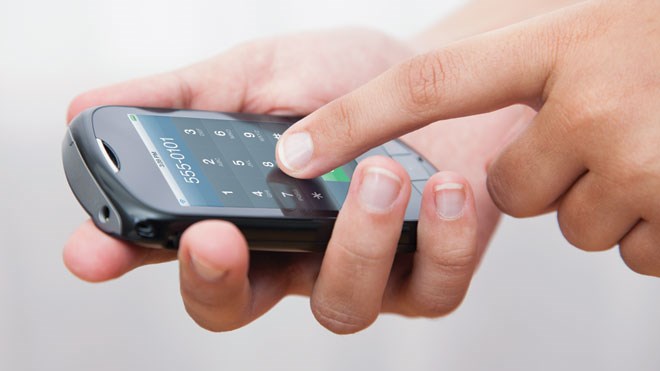THUNDER BAY -- The Lakehead District Public School Board will continue to monitor the student use of cell phones and tablets in the classroom, but has no plans to consider restrictions similar to what were imposed recently at a Toronto middle school.
The prohibition there includes classrooms and school hallways, and was put in place after some parents raised concerns about the inappropriate use of devices.
A spokesperson for the Lakehead board says BYOD [Bring Your Own Device] guidelines are in place to ensure cell phones are used for learning purposes, and any inappropriate use is dealt with on a case-by-case basis.
Eric Fredrickson, principal at McKellar Park Central School and chair of the board's Information Technology committee, said the board believes that modern communication devices can play a useful role in education.
"As smart phones get to be more and more powerful and are able to do more things, the cell phone is becoming a tool for students to use as part of their learning," he said in an interview with tbnewswatch.com.
Fredrickson said schools have their own inventory of laptop computers and tablets for student use, and the BYOD policy supplements that. "It means that if students have a device that they're more comfortable with or that they use on a regular basis to store their files and that sort of thing, then they have access to that."
He stressed, however, that the policy does not mean students have unrestricted access to their phones and other devices in school. "There are expectations that would be outlined in the school's Code of Conduct and in board policy."
Fredrickson said cell phone use is not restricted per se, but "Kids would be expected to use a device that they have or own the same way that they would be treating a person if they were having a conversation with them...managing their own behaviour, that sort of thing."
The BYOD policy, he said, is in place to give students more access to technology when the teacher determines it's necessary. "That's not to be on your phone or be on your tablet whenever you want to. If the teacher in the class decides that having technology would be an appropriate tool as part part of the learning in that environment then that would be the time when those devices are out."
When a student's use of a cell phone violates the guidelines, Fredrickson said the situation is dealt with, but those incidents are rare.
"Typically...it could be dealt with by having a conversation with the student, and having a conversation with the parents. It crosses a lot of different areas for life. Having parents and guardians be part of the conversation and having them understand why we might concerned is really important."
Fredrickson noted that "It isn't like it's something that's in their school desk and maybe they're using it in a way that's unkind or unsafe, and maybe they go home and they don't have that. It's something that's with them all the time."
He said it's important from a community standpoint to address the misuse of devices because the technology isn't useful just in learning, but can help to "get kids ready to be 21st century workers, being in society and active in their adult lives."
As for what happened recently in the school in Toronto, Fredrickson said he doesn't know the intricacies of the story, but feels it's unfortunate the situation got to that point. He said he hopes it gives the school an opportunity to pause and re-set, and think about "how they can layer technology back in."
Frederickon added that it's exciting to see today's students from kindergarten to grade 12 using the power of technology in many interesting ways, "going beyond the walls of the classroom" and using it as a learning tool that will help prepare them for the rest of their lives.
